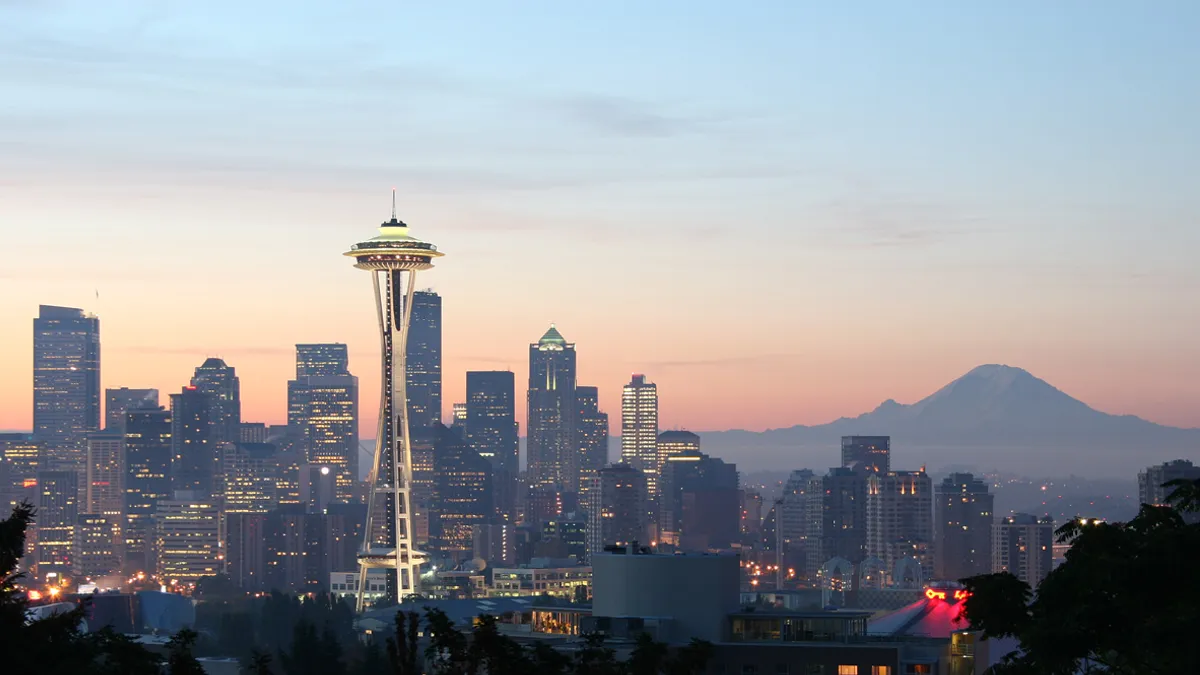UPDATE: The Seattle City Attorney's office has issued a statement defending the ordinance that prohibits residents and businesses from disposing of food waste and compostable waste into the solid waste stream. According to the statement, the ordinance "fully complies with the law, including the enhanced privacy protections afforded by the Washington Constitution."
Seattle Public Utilities also debunked the notion that waste collectors were sifting through residents' garbage bags. In a statement, SPU clarified that trash bags are not opened, and only visible food and compost waste is reported.
Dive Brief:
- A Seattle ordinance, put into effect on Jan. 1, has prohibited residents and businesses from disposing of food waste and compostable paper into the solid waste stream.
- Government training documents for trash haulers calls for "zero tolerance" for any food waste or compostable paper in the trash, causing collectors to "snoop" through trash bags and inspect the waste. Haulers are instructed to report residents whose waste contains more than 10% of the prohibited items, and those residents are then penalized with fines.
- A lawsuit filed on behalf of eight Seattle residents claims that the city's prohibition is an outward violation of privacy. One of the residents Steve Davies said in a statement that, "Seattle's garbage law promotes government snooping, and that's not just offensive, it's a violation of constitutional protections for all Seattle residents."
Dive Insight:
In an effort to protect the environment, many industry leaders and environmentalists have made efforts to keep recyclable materials — such as food scraps and pizza boxes — out of landfills. However, these ordinances have backfired in many cities across the nation, causing residents to fight for their say in the legislation.
“Seattle can’t place its composting goals over the privacy and due process rights of its residents,” said Ethan Blevins, attorney for the Pacific Legal Foundation.
Despite arguments, the ordinance was put in place with good intentions. Seattle's ban on food waste and compostable materials is aimed at helping the city reach a recycling and composting goal of 60% by the end of 2015.















